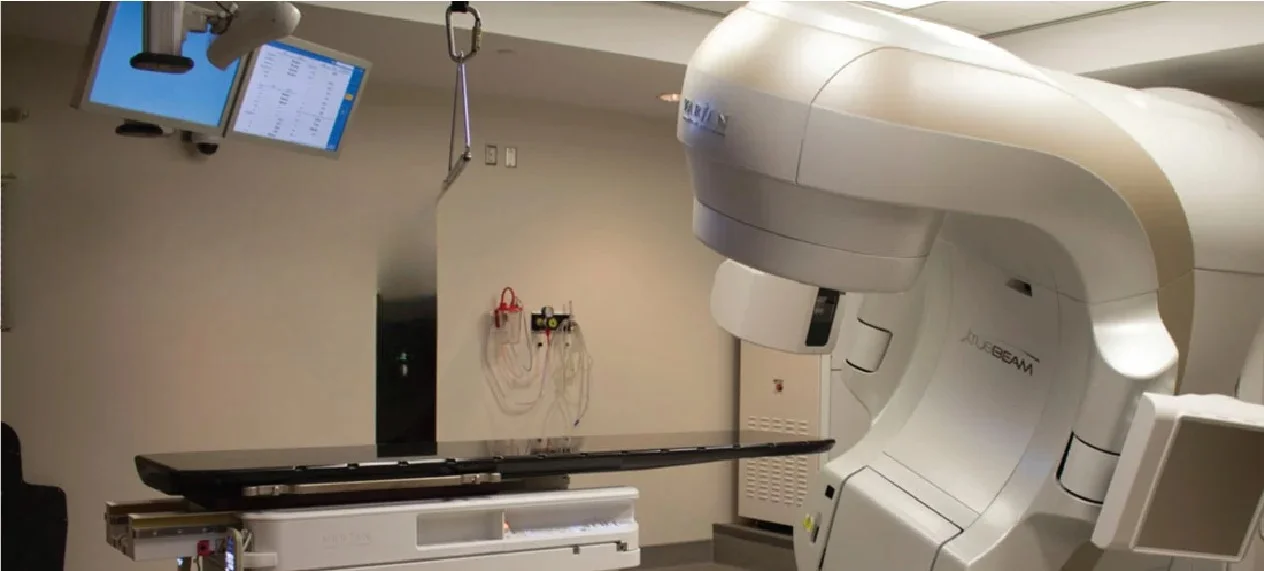
Our body produces healthy cells every day that grow and die to form new cells. But cancerous cells grow faster and keep on living longer than they should. These cancerous cells turn into a malignant tumour that can metastasize into nearby tissues and organs. Cancer treatments work either by damaging the cancerous tumour and removing it. While surgery is used to remove cancer, radiation oncology treatment in Udaipur is a specialized branch of cancer intervention and management that targets and destroys cancer. In the best cancer hospitals in Udaipur, Radiologists use high-intensity radiation beams like X-Rays, Gamma rays or electrons to cure cancer. It works by damaging and making small breaks in the DNA inside cancerous cells. These damages can keep cancer cells from growing and spreading and lead them to die on their own. However, continuous radiation exposure can cause damage to the nearby healthy cells and several short-term and long-term symptoms.
The side effects of radiation therapy vary from patient to patient and depend on the exposed area, doses and even cancer’s type and extent. While some cancer patients experience mild or no side effects during their Radiation Therapy, others feel some recurring symptoms, discomfort and even pain. But knowing what to expect during radiation therapy can help you ease the side effects and maintain your health and sanity. Therefore, you should talk to a radiation oncology doctor in Jaipur to know more possible side effects of Radiation Therapy, which can include:
Radiation therapy is effective in treating cancer, but it can cause temporary or long-term side effects, depending on factors like the treatment area, cancer type, and radiation dose. Understanding these side effects helps patients manage them better throughout their treatment.
Fatigue is common during radiation therapy. This occurs as the body expends a lot of energy to heal from the effects of radiation. It can make patients feel extremely tired, mentally drained, and physically weak. Most patients experience fatigue for up to two weeks, and it gradually improves after treatment ends.
Radiation therapy damages healthy skin cells in the treated area, leading to skin changes. Due to daily radiation exposure, the skin doesn’t have enough time to recover between sessions. Symptoms include sunburn-like effects, darkened skin, redness, dryness, itching, peeling, and swelling. These symptoms usually resolve within a few weeks after treatment ends.
Hair loss is another common side effect of radiation therapy. Unlike chemotherapy, which causes widespread hair loss, radiation therapy causes hair loss only in the treated area. Hair loss may begin within one or two weeks after starting radiation. Hair often regrows after treatment, although it may be thinner, curlier, or a different color.
Radiation therapy for head and neck cancer or thyroid cancer can cause changes in the mouth and throat. It can damage the glands that produce saliva, leading to dry mouth and dental issues. Radiation to the chest and lungs can cause swelling and soreness in the throat lining. These issues typically resolve after treatment, but some may persist.
Q1. What side-effects are common with Radiation for Cancer ?
A1. Fatigue, skin irritation (Redness, peeling), hair loss in treated area, nausea (if abdomen), changes in appetite, and sometimes long-term effects depending on site treated.
Q2. Are side-effects permanent ?
A2. Most acute side-effects fade over weeks to months after treatment ends, though some long-term or late-onset effects may persist depending on organs exposed.
Q3. How can side-effects be managed ?
A3. With proper skin care, adequate rest, balanced nutrition, hydration, symptom-specific medications (e.g., antiemetics) and close communication with the radiation oncology team.